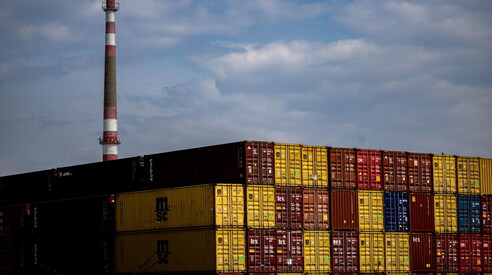"The tariff agreement? The lesser evil was chosen." Boscaini (Confindustria Veneto) speaks.


Ansa photo
The intervention
"A trade war would have been unsustainable for anyone," says the president of the Veneto industrialists' association and a wine producer. "The agri-food sector will suffer the most from tariffs, but we will work together to obtain exemptions."
On the same topic:
Happy, no. "But at least we know what tariffs will kill us," the summary from Confindustria Veneto . "And in macroeconomics, reducing uncertainty is the best way to reactivate the markets: they will now organize themselves and choose which strategy to undertake based on this 15 percent." This is the amount of the final agreement between Ursula and The Donald, between the European Union and the United States. Even if it won't affect everyone equally. In addition to being president of the regional organization, Raffaele Boscaini represents the wine and agri-food sector: the hardest hit by the tariffs. "And on this point, the agreement will have room for improvement: the EU High Representative for Foreign Affairs also reiterated this. Let's see how the negotiations can be initiated; it's not easy to identify the most effective path. Perhaps, however, we can even secure an exemption for wines." A toast would be in order.
The day after the news broke, people were already thinking about an action plan. "Each company interprets these new directives differently," Boscaini explained to Il Foglio. "But in short, two possible strategies emerge: splitting this 15 percent between the producer, distributor, and end consumer," thus spreading the additional financial burden across all parties involved, to cushion the consequences. "Or—a less common option—choosing to absorb the duties entirely through the supply chain: this way, the selling price isn't increased, but the producer's margins are reduced. Another problem, adding to the overall picture, is dealing with such a low dollar. As of today, there's less uncertainty, but concerns persist. Let's see how the markets react."
Is there a way to create a system within the business community? "It's difficult to think by sector. Each has its own distribution channels and business approaches. Even in the agri-food sector, very different situations exist: those producing higher added value—for example, luxury wines—will not be particularly impacted by tariffs; low-shelf goods, on the other hand, will be the most penalized." A necessary clarification: Italian producers aren't happy, but American consumers are even less so. "They are so attached to Made in Italy, a non-substitutable good," emphasizes the Confindustria member. "Therefore, there will be significant repercussions. Both Federvini and the Italian Wine Union have provided significant projections: losses of almost a billion euros compared to sales in the sector are estimated. I remain cautious; we will have to observe the reality of the facts. But the inflationary situation is severe, and Trump's plan to move the production chain to America implies equally serious repercussions: relocation doesn't happen in two days."
Even if Washington is claiming victory. "Trump has succeeded in his intent: playing a bit of a cowboy and imposing this tug-of-war. The deal certainly leans in his favor, but not with the numbers the American president would have wanted." And Brussels? Did it really limit the damage? "One could make a thousand considerations," Boscaini reasons. "I'd say it was sensible behavior anyway: starting a large-scale trade war would have caused victims everywhere. So I can't say I like this scenario. But given the way the world is going, it could have been worse. Much worse."
More on these topics:
ilmanifesto




